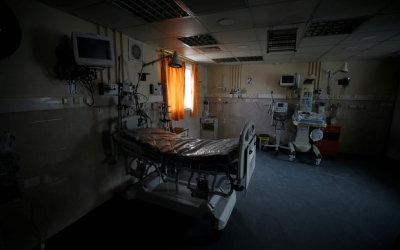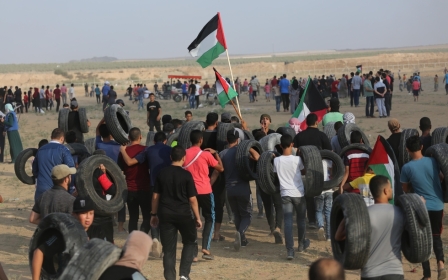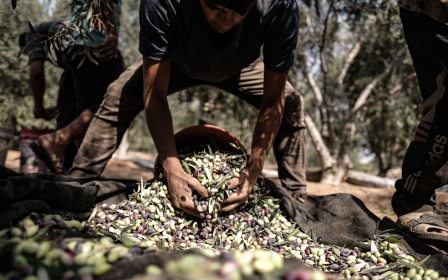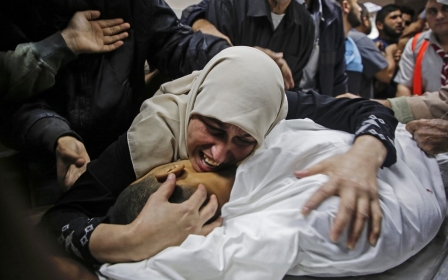New Gaza hospital run by US charity near Israel stokes controversy
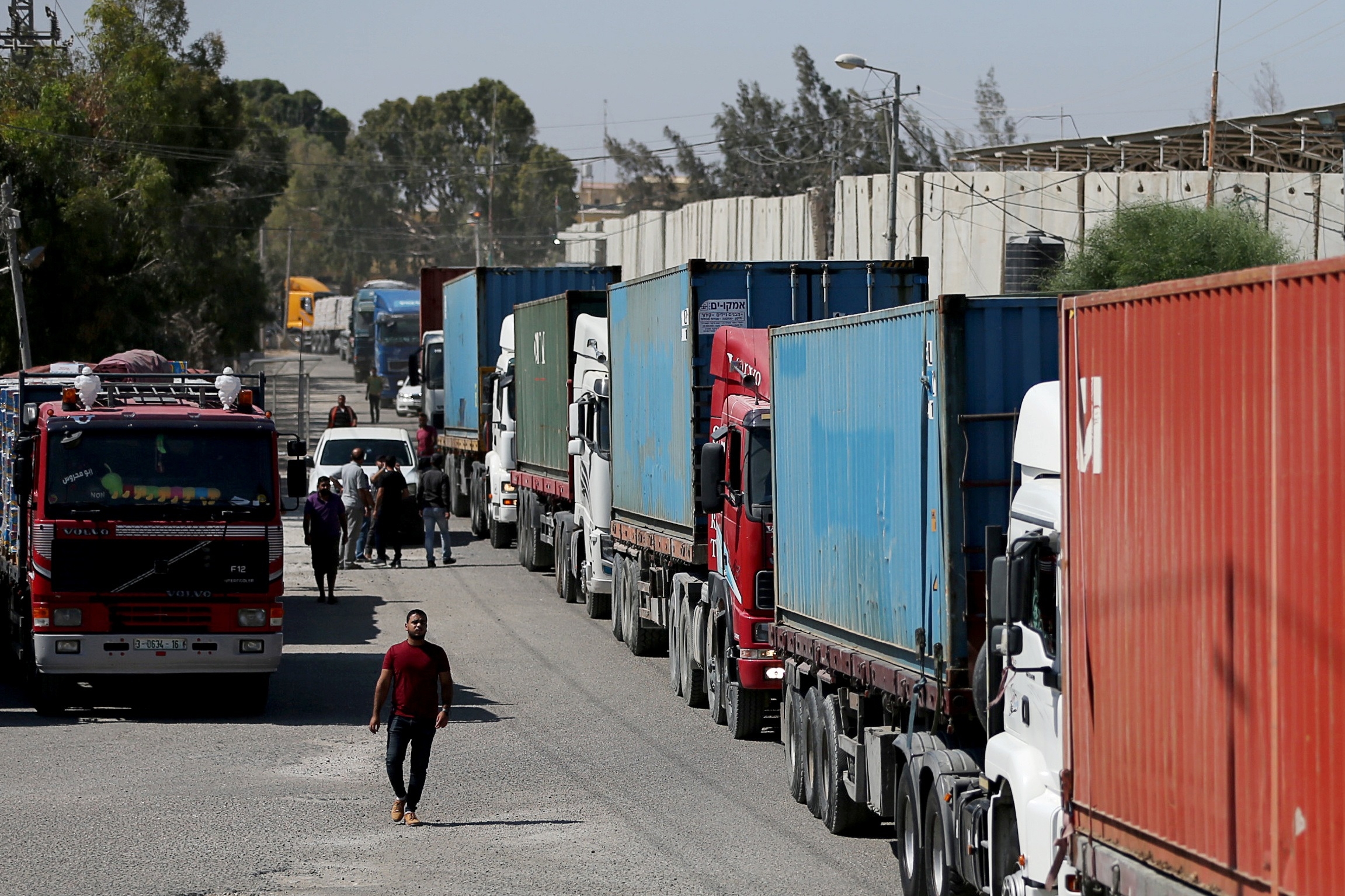
A new field hospital being set up by a US charity in northern Gaza is stoking fresh tensions between Hamas and Fatah.
The tent hospital, which will be situated close to the Erez crossing into Israel, is believed to be the outcome of ongoing Egyptian-brokered talks between Israel and Hamas.
The 4,500-square-foot, 50-bed facility will be funded by the Qatari government with assistance from FriendShips, a Louisiana-based organisation which is reportedly moving tents and equipment used in a hospital in Syria to the enclave.
While no one denies that Gaza, under siege since June 2007, is in desperate need of health care facilities, the controversy lays over questions about the motivation of those behind the project.
Hamas says that the hospital will help ease Gaza’s health crisis and denies that the project has any political overtones.
“The decision to establish the American field hospital came because part of the blockade had a major impact on the health conditions in the Gaza Strip due to Israeli policy and Palestinian Authority neglect in dealing with medical conditions in Gaza,” Hamas spokesman Hazem Qassem told Middle East Eye.
Hamas and Fatah, which runs the Palestinian Authority (PA), have been in a stand-off since 2007 after the former took control of Gaza following 2006 legislative elections in which Hamas' victory was contested by Fatah. In recent years, the PA has tried to pressure Hamas by cutting Gaza's electricity supplies and cutting salaries to PA employees in Gaza.
Fatah leaders have said they question the timing of the support for the hospital and wonder whether the project is part of the Trump administration’s "deal of the century" peace plan, which has been widely panned by Palestinians.
On Monday, Palestinian Prime Minister Mohammad Shtayyeh said the hospital “embodies the American plan to refuse to deal with political demands and the national rights of our people”.
“What is happening is one of the outcomes of the Bahrain workshop,” he added, referring to a June conference in which Trump officials pitched the economic portion of their proposed deal and which the PA boycotted.
Munir al-Jaghoub, head of Fatah’s Information Department, told MEE that the hospital was part of a US-Israeli plan to separate Gaza from the West Bank and establish a state in Gaza, eliminating the possibility of a sovereign, independent Palestinian state.
"Has the American conscience suddenly woken up? The United States cut off all aid to the Palestinian people, including support for hospitals in occupied Jerusalem and for UNRWA,” al-Jaghoub told MEE, referring to the UN agency working with Palestinian refugees. “Will this hospital in Gaza be innocent?”
'Has the American conscience suddenly woken up?'
- Munir al-Jaghoub, Fatah's Information Department head
Further controversy has also been sparked locally as it emerged that FriendShips is offering volunteers who come to Gaza a chance to tour Biblical sites in Israel during weekend breaks.
Dr Basem Naim, who served as Gaza’s minister of health from 2006 to 2012, told Reuters on Tuesday that he was against using “our people’s suffering to market Israel or attracting employees at our people’s expense”.
In an earlier interview with Middle East Eye, however, Naim stressed that the hospital will provide Gaza with advanced medical and therapeutic services which are not available at local hospitals, and will support Gaza in the face of both Israel’s blockade and the PA's pressure on the enclave.
Naim said concerns about US intentions were “legitimate”, but underlined that the hospital won’t belong to any official or government.
While the location of the hospital, close to the Israeli security fence, has raised concerns for some, Naim said that any field hospital "is subject to security controls from the sponsoring state to ensure the freedom of movement of staff”.
'Take caution'
It’s not just Fatah leaders who object to the hospital. Some members of the committee behind the March of Return protests – which have seen Gaza's hospitals regularly overwhelmed since they began last March - have also distanced themselves from the project.
Jerusalem’s Grand Mufti has even weighed in, calling on Palestinians in Gaza to “take caution”.
"The American hospital comes at a time when America is preventing political and financial assistance from our steadfast people, giving our land to settlers, conspiring against our holy sites, imposing financial sanctions on our economy, our hospitals and institutions, and fighting UNRWA,” he said in a statement. “No one can believe that this project is innocent of suspicion.”
'Do the miserable conditions of the Gaza siege give one the luxury to object to a health project that relieves the suffering of the people?'
- Saleh Naami, journalist
Saleh Naami, a journalist close to Hamas, said USAID - along with European and Arab governments - has been running health and infrastructure projects in the West Bank and Gaza for years. Why question outside assistance now? he asked.
“Do the miserable conditions of the Gaza siege give one the luxury to object to a health project that relieves the suffering of the people?" Naami said.
Speculation that the hospital is part of the "deal of the century" or even a US military base is “ridiculous and not worth responding to”, he said. Gaza and the West Bank, he added, are already under Israel’s control.
But Norway-based Palestinian human rights activist Louay Deeb told MEE that he believes the hospital will have "serious repercussions".
"With US sanctions still in place on Hamas, it means that any American organisation or civilian must obtain permission from the US National Security Council," he said, wondering why an exception was being made now in Gaza, especially when US aid has been cut from other projects.
Middle East Eye delivers independent and unrivalled coverage and analysis of the Middle East, North Africa and beyond. To learn more about republishing this content and the associated fees, please fill out this form. More about MEE can be found here.


